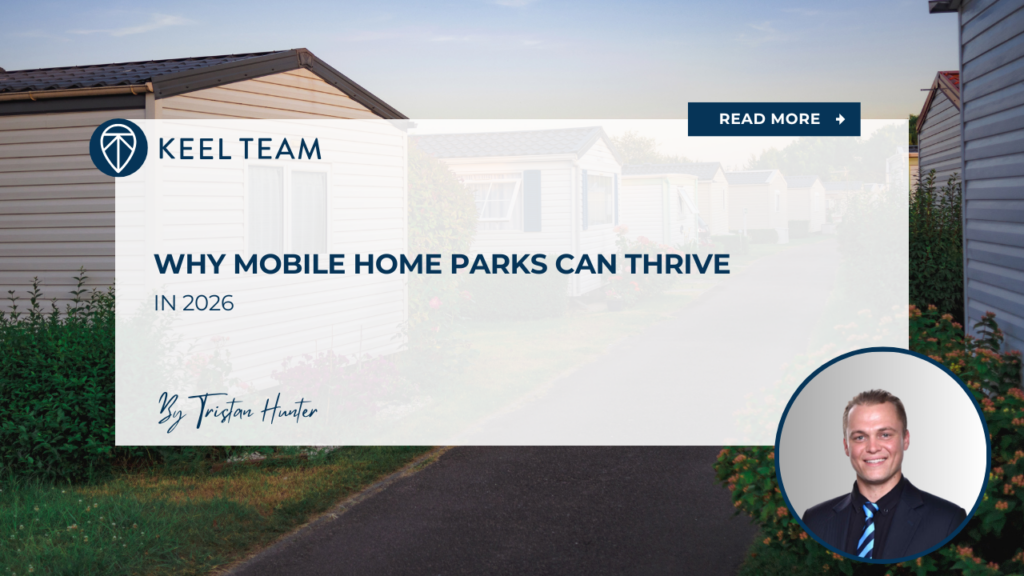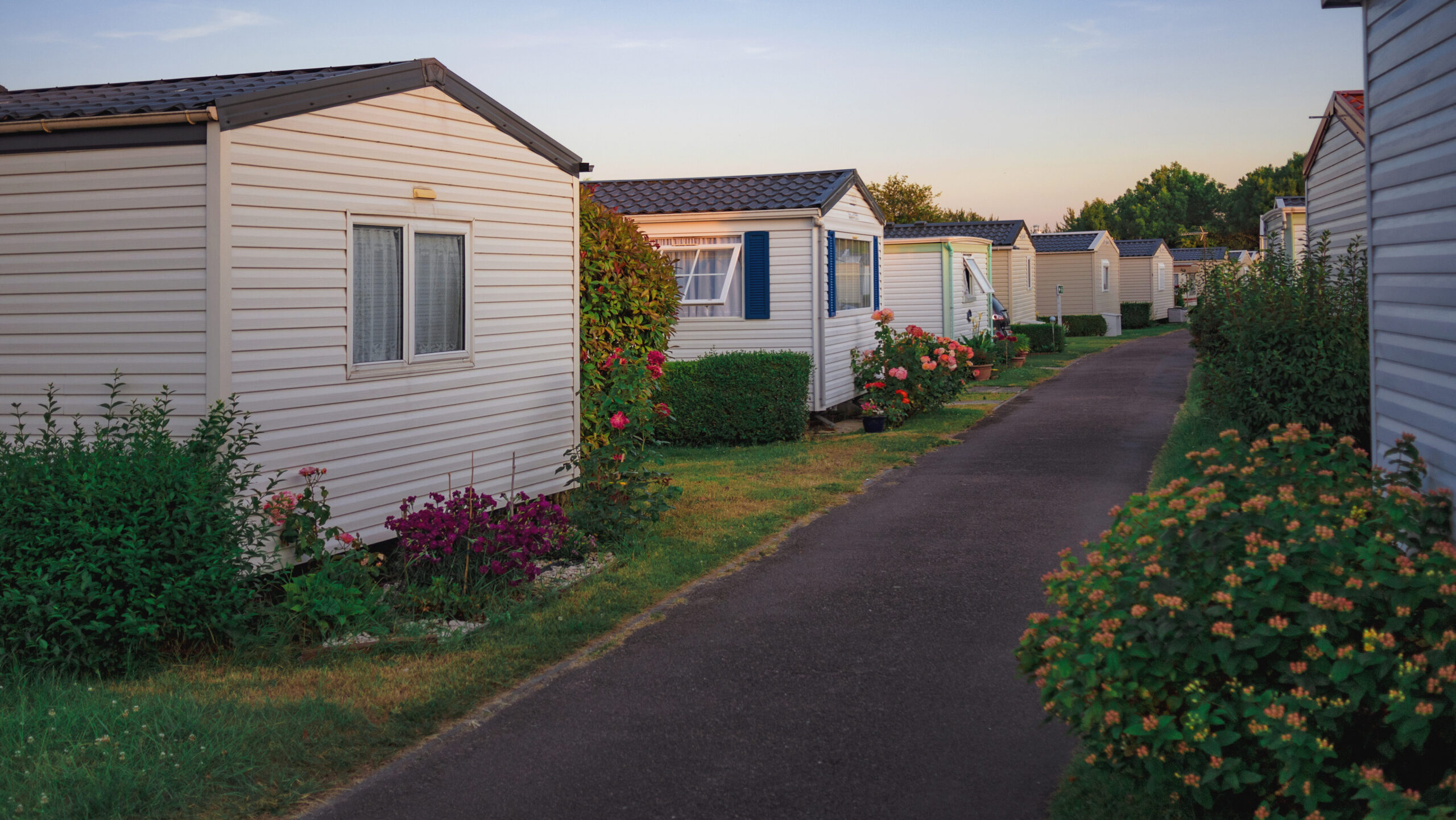Why Mobile Home Parks Can Thrive in 2026
-
 Tristan Hunter - Investor Relations
Tristan Hunter - Investor Relations

Mobile home parks could continue to attract attention due to their role in addressing the affordable housing crisis. As home prices and rents rise, many Americans may turn to mobile homes for cost-effective living. Moreover, mobile home parks often offer stable cash flow, as tenants typically stay long-term, reducing turnover costs. With these dynamics in play, let’s dive into the trends that may shape the mobile home park industry in 2026.
Technology Integration in Mobile Home Park Management
Smart Property Management Systems
Mobile home park operators may increasingly adopt technology to streamline operations. Property management software could simplify rent collection, maintenance requests, and tenant communication. For example, platforms like Rent Manager or Buildium might allow managers to automate tasks, saving time and reducing errors. In 2026, cloud-based systems may enable real-time data access, helping owners monitor performance from anywhere.
IoT for Energy Efficiency
Internet of Things (IoT) devices might transform how mobile home parks manage utilities. Smart meters could track water, electricity, and gas usage, identifying inefficiencies. For instance, installing smart thermostats in community buildings may reduce energy costs. These upgrades could appeal to eco-conscious tenants and lower operational expenses, potentially boosting profitability.
Download our FREE eBook on the Top 20 things to know BEFORE investing in mobile home parks!
Sustainability and Eco-Friendly Upgrades
Green Infrastructure Investments
Sustainability may become a priority for mobile home park owners. Solar panels, energy-efficient lighting, and water-saving fixtures could reduce environmental impact and attract tenants who value green living. For example, adding solar-powered streetlights might lower electricity bills while enhancing community appeal. Investors who prioritize these upgrades may see higher tenant retention and increased property value.
Recycling and Waste Management Programs
Mobile home parks might implement robust recycling and waste management programs. By providing designated recycling bins and composting options, communities could reduce landfill contributions. These initiatives may resonate with younger tenants, who often prioritize environmental responsibility. Additionally, sustainable practices could qualify parks for tax incentives or grants, further enhancing returns.
Evolving Tenant Demographics
Appealing to Younger Generations
Millennials and Gen Z may increasingly view mobile home parks as viable housing options. These demographics, often priced out of traditional homeownership, might seek affordable, community-oriented living. To attract younger tenants, mobile home park owners could invest in amenities like high-speed Wi-Fi, co-working spaces, or recreational areas. Creating vibrant communities may set parks apart in a competitive market.
Catering to Retirees
Retirees may continue to flock to mobile home parks for affordable, low-maintenance living. In 2026, parks tailored to seniors could thrive by offering amenities like fitness centers, social clubs, or on-site healthcare services. For example, organizing community events might foster a sense of belonging, encouraging long-term tenancy. Investors who cater to this demographic may benefit from stable occupancy rates.
Creative Financing and Investment Models
Syndication Opportunities
Real estate syndication might gain popularity in mobile home park investing. By pooling capital from multiple investors, syndicators could acquire larger or distressed mobile home parks, potentially turning them into profitable assets. This model may allow smaller investors to enter the market without managing properties directly. In 2026, syndication platforms could make it easier to find and fund deals.
Seller Financing and Partnerships
Seller financing may remain a key strategy for acquiring mobile home parks. Owners looking to retire might offer favorable terms, such as low down payments or flexible repayment schedules. Additionally, partnerships with local governments or nonprofits could unlock funding for park improvements. These creative approaches may help investors overcome high interest rates or tight lending conditions.
Regulatory and Zoning Shifts
Navigating Zoning Challenges
Zoning regulations could continue to impact mobile home park development. Some municipalities may loosen restrictions to address housing shortages, potentially creating opportunities for new parks. However, others might impose stricter rules, limiting expansion. Investors may need to stay informed about local policies and engage with community stakeholders to navigate these challenges successfully.
Affordable Housing Incentives
Governments might offer incentives to mobile home park owners who provide affordable housing. Tax breaks, grants, or low-interest loans could support park upgrades or expansions. For example, programs like the U.S. Department of Housing and Urban Development’s (HUD) Community Development Block Grants might fund infrastructure improvements. Staying updated on these opportunities may give investors a competitive edge.
Community-Centric Amenities
Enhancing Resident Experience
Mobile home parks that prioritize community may stand out in 2026. Adding amenities like playgrounds, dog parks, or community gardens could foster tenant satisfaction. For instance, a well-maintained community center might host events, building stronger resident connections. These enhancements may lead to higher retention rates and positive word-of-mouth referrals.
High-Speed Internet as a Must-Have
Access to reliable, high-speed internet may become non-negotiable for tenants. With remote work and online education on the rise, mobile home park owners might invest in fiber-optic networks or partner with providers to ensure connectivity. Offering free or subsidized Wi-Fi could differentiate a park from competitors, attracting tech-savvy residents.
Rising Interest Rates and Economic Factors
Adapting to Higher Borrowing Costs
Interest rates may continue to influence mobile home park investments. Higher borrowing costs could make financing acquisitions more challenging, prompting investors to seek creative solutions like seller financing or private loans. Additionally, focusing on parks with strong cash flow might mitigate the impact of rising rates, ensuring returns remain attractive.
Inflation and Operational Costs
Inflation could increase operational costs for mobile home parks, from utilities to maintenance. To manage expenses, owners might negotiate bulk discounts with vendors or invest in energy-efficient upgrades. Passing some costs to tenants through modest rent increases may be necessary, but owners should balance affordability to maintain occupancy.

The Role of Data in Decision-Making
Leveraging Market Analytics
Data-driven decision-making may shape mobile home park investments in 2026. Tools like CoStar or Reonomy could provide insights into market trends, property values, and demographic shifts. By analyzing data, investors might identify undervalued parks or high-growth areas. Staying ahead of market trends could lead to smarter acquisition and management strategies.
Predictive Maintenance with AI
Artificial intelligence (AI) might help mobile home park owners anticipate maintenance needs. Predictive analytics could flag potential issues, such as aging water lines or HVAC systems, before they become costly repairs. Implementing AI tools may reduce downtime and improve tenant satisfaction, ultimately boosting profitability.
Potential Risks to Watch
Economic Uncertainty
Economic fluctuations could impact mobile home park performance. A downturn might reduce tenant incomes, affecting rent payments. Investors may need to offer flexible payment plans or focus on parks in economically stable regions. Diversifying investments across multiple properties could also mitigate risks.
Regulatory Headwinds
Shifting regulations, such as rent control or stricter environmental standards, might pose challenges. Investors should monitor local and state policies to anticipate changes. Building relationships with legal experts or industry associations could help navigate regulatory complexities and ensure compliance.
How to Prepare for 2026
To capitalize on these trends, investors might take proactive steps. First, research emerging markets where demand for affordable housing is growing. Second, network with industry professionals through conferences or online forums to stay informed. Finally, consider partnering with experienced operators to gain insights and share risks. By staying adaptable, investors could position themselves for success in the evolving mobile home park landscape.
Conclusion
The future of mobile home park investing in 2026 may be shaped by technology, sustainability, and changing tenant needs. While challenges like rising interest rates and regulatory shifts could arise, opportunities in creative financing, community-focused amenities, and data-driven strategies may drive success. By staying informed and adaptable, investors might unlock the full potential of mobile home parks as a resilient and profitable asset class.
Are you looking for MORE information? Book a 1-on-1 consultation with Andrew Keel to discuss:
- A mobile home park deal review
- Due diligence questions
- How to raise capital from investors
- Mistakes to avoid, and more!
Disclaimer:
The information provided is for informational purposes only and is not investment advice or a guarantee of any kind. We do not guarantee profitability. Make investment decisions based on your research and consult registered financial and legal professionals. We are not registered financial or legal professionals and do not provide personalized investment recommendations.

Tristan Hunter - Investor Relations
View The Previous or Next Post
Subscribe Below 👇





